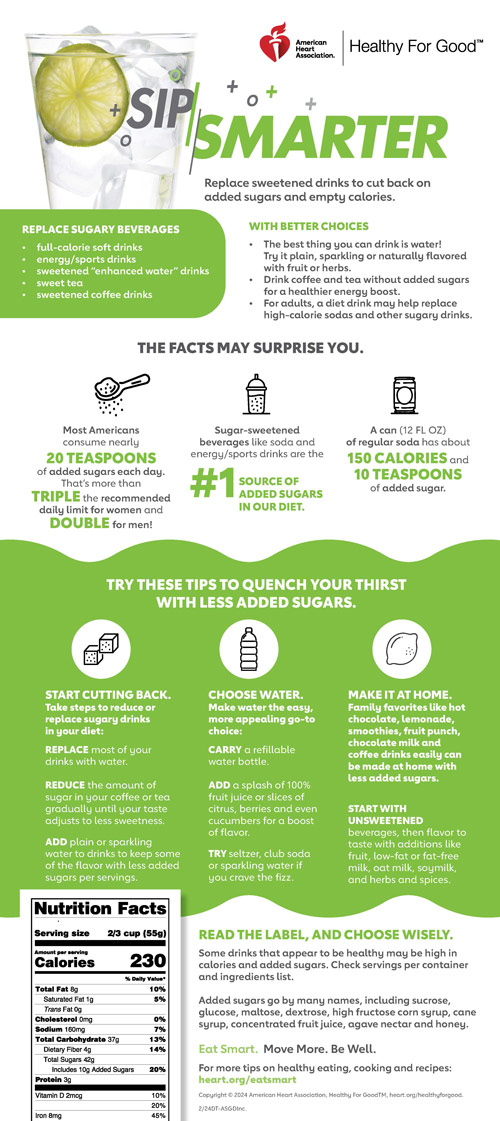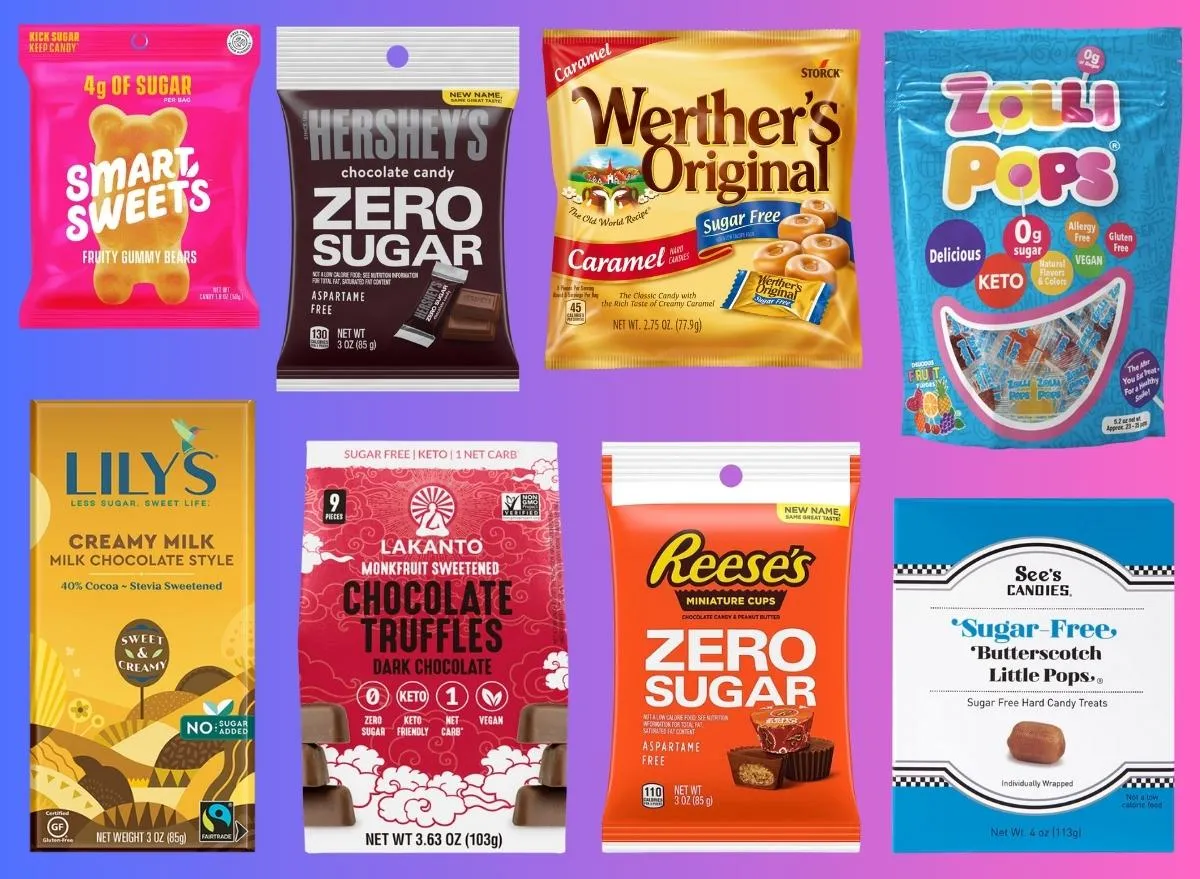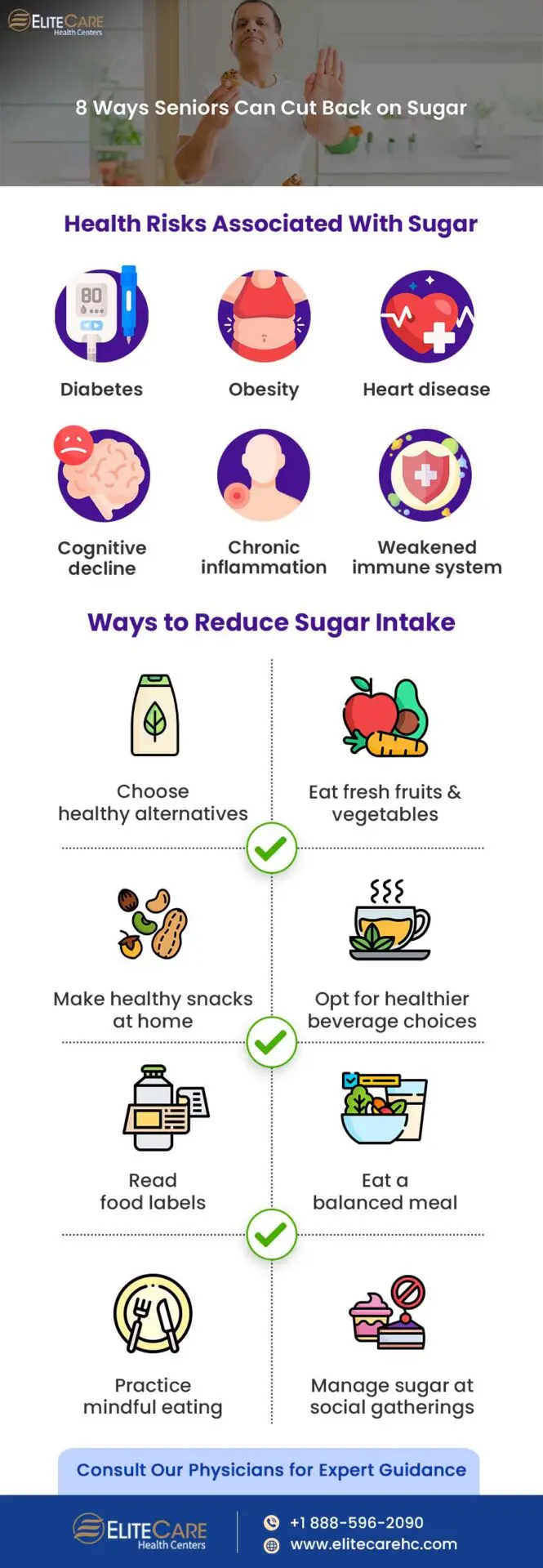
Welcome to the world of sugar-free living! In today’s society, added sugars are found in almost every corner of our food supply, from beverages to baked goods. However, reducing your consumption of added sugars can have a multitude of benefits for your health and well-being. In this article, we will explore why it’s important to cut back on added sugars, what types of sugars to be aware of, the impact of added sugars on health, how to identify hidden sources of added sugars, and practical tips for reducing your intake. Get ready to take control of your sugar consumption and live a healthier, sweeter life.
Why reducing added sugars in your diet is important
Reducing added sugars in your diet is crucial for maintaining good health. Excessive consumption of added sugars has been linked to a plethora of health problems, including obesity, type 2 diabetes, heart disease, and tooth decay. By cutting back on added sugars, you can lower your risk of these conditions and improve your overall well-being. Additionally, reducing sugar intake can help stabilize your energy levels, enhance your mood, and support weight management. So, take control of your sugar consumption and prioritize your health by making informed choices about what you eat.
Understanding the different types of sugars
Understanding the different types of sugars is important when cutting back on added sugars in your diet. There are various types of sugars that can be found in foods and beverages, and it’s important to be aware of them to make informed choices. Some common types of sugars include sucrose, fructose, glucose, and lactose. These sugars can be naturally occurring in foods like fruits and dairy products, or they can be added to processed foods and beverages. Reading food labels and understanding ingredient lists can help you identify the types and amounts of sugars in the products you consume. By being aware of the different types of sugars, you can make healthier choices and reduce your overall sugar intake.
The Impact of Added Sugars on Health

Consuming too much added sugar can have a negative impact on your health. It has been linked to an increased risk of developing conditions such as obesity, type 2 diabetes, heart disease, and even certain types of cancer. Added sugars can contribute to weight gain and make it harder to maintain a healthy weight. They can also cause spikes in blood sugar levels and lead to insulin resistance. By cutting back on added sugars, you can reduce your risk of these health conditions and improve your overall well-being.
Health risks associated with consuming too much added sugar
Consuming too much added sugar can have serious health risks. It can increase your risk of developing conditions like obesity, type 2 diabetes, heart disease, and certain types of cancer. Added sugars can contribute to weight gain and make it harder to maintain a healthy weight. They can also lead to spikes in blood sugar levels and insulin resistance, which can further increase the risk of type 2 diabetes. Additionally, high sugar intake can negatively impact your dental health, leading to tooth decay and cavities. It is important to reduce your consumption of added sugars to protect your overall health.
Effects of added sugars on weight gain and obesity

Consuming added sugars can contribute to weight gain and increase the risk of obesity. When we consume excessive amounts of sugar, our body converts it into fat, leading to weight gain. Sugar also lacks essential nutrients and can leave us feeling less satisfied, causing us to eat more calories. Moreover, sugary beverages like soda and energy drinks are often high in calories and can lead to weight gain. By reducing your intake of added sugars, you can decrease the risk of weight gain and obesity, promoting a healthier body composition.
Identifying Hidden Sources of Added Sugars
When it comes to cutting back on added sugars in your diet, it’s important to be aware of the hidden sources that can sneak into your meals and snacks. Here are some common foods and beverages that often contain hidden sugars:
- Processed foods: Items like packaged snacks, cereal bars, and flavored yogurts often have added sugars.
- Sauces and dressings: Many condiments, including ketchup, barbecue sauce, and salad dressings, can be loaded with sugar.
- Drinks: Sugary beverages like soda, fruit juices, energy drinks, and sweetened coffees or teas can be major sources of hidden sugars.
To identify hidden sugars, always read food labels and look for ingredients like cane sugar, high fructose corn syrup, and any other words ending in “-ose.” Being mindful of these hidden sugar sources can help you make healthier choices and reduce your overall sugar intake.
Common foods and beverages with hidden added sugars
When it comes to cutting back on added sugars, it’s important to be aware of the hidden sources that can sneak into your meals and snacks. Here are some common foods and beverages that often contain hidden sugars:
- Processed foods: Packaged snacks, cereal bars, and flavored yogurts often have added sugars.
- Sauces and dressings: Condiments like ketchup, barbecue sauce, and salad dressings can be loaded with sugar.
- Drinks: Sugary beverages like soda, fruit juices, energy drinks, and sweetened coffees or teas can be major sources of hidden sugars.
Reading food labels and being mindful of these hidden sugar sources can help you make healthier choices and reduce your overall sugar intake.
Reading food labels and understanding ingredient lists
is essential for identifying hidden sources of added sugars in your diet. When looking at food labels, start by checking the “Total Sugars” section. Keep in mind that natural sugars, like those found in fruits and dairy products, are different from added sugars. Look out for ingredients like corn syrup, cane sugar, and high-fructose corn syrup, which are all forms of added sugars. Familiarize yourself with these terms to make informed choices about the foods you consume. Remember, the closer an ingredient is to the beginning of the list, the more of it is present in the product.
Tips for Reducing Added Sugars in Your Diet
To successfully reduce added sugars in your diet, it’s essential to take gradual steps and set achievable goals. Here are some practical strategies you can implement:
- Swap sugary drinks for water or unsweetened beverages like herbal tea.
- Choose whole fruits instead of fruit juices or processed snacks.
- Opt for plain yogurt and add your own fresh fruit for sweetness.
- Read food labels carefully and choose products with little to no added sugars.
- Cook your own meals using natural ingredients, rather than relying on processed foods.
- Experiment with spices and herbs to enhance the flavors of your dishes without added sugars.
By incorporating these tips into your daily routine, you can gradually reduce your added sugar intake and improve your overall health. Remember, small changes can make a big difference.
Gradual reduction and setting achievable goals
When it comes to reducing added sugars in your diet, it’s important to take a gradual approach and set achievable goals. Trying to cut out all added sugars at once can be overwhelming and difficult to sustain. Start by identifying the main sources of added sugars in your diet and gradually reduce your consumption of those foods and beverages. Set small, realistic goals for yourself, such as replacing sugary drinks with water or swapping processed snacks for whole fruits. By taking small steps, you’ll be more likely to succeed and create lasting changes in your eating habits.
Practical strategies for cutting back on added sugars
Cutting back on added sugars can be challenging, but there are practical strategies you can implement to make it easier. Here are some tips:
- Gradually reduce sugar intake: Start by cutting back on sugary foods and drinks a little at a time. This allows your taste buds to adjust gradually.
- Opt for whole foods: Choose whole fruits instead of processed snacks or sugary desserts. They provide natural sweetness and additional nutrients.
- Read food labels: Pay attention to the sugar content listed on food labels. Choose products with lower sugar content or no added sugars.
- Avoid sugary beverages: Replace sugary drinks with water, unsweetened tea, or infused water.
- Prepare meals at home: Cooking at home allows you to control the amount of sugar in your meals. Experiment with herbs and spices to enhance flavor instead.
- Be mindful of condiments and dressings: Many condiments and dressings contain hidden sources of added sugars. Choose low-sugar or sugar-free alternatives.
By implementing these practical strategies, you can gradually reduce your intake of added sugars and improve your overall health.
Sugar-Free Alternatives and Substitutes

When cutting back on added sugars, it’s helpful to have alternatives and substitutes that can satisfy your sweet tooth without the negative health effects. Here are some sugar-free options to consider:
- Fresh fruits: Opt for naturally sweet fruits like berries, oranges, and apples to give you that sweet taste without added sugars.
- Stevia: This natural, calorie-free sweetener is a great substitute for sugar in beverages and recipes.
- Unsweetened cocoa powder: Use cocoa powder to add a rich chocolate flavor to recipes without the added sugar.
- Cinnamon and nutmeg: These spices can enhance the sweetness of foods without adding any sugar.
- Sugar-free gum and mints: These can provide a burst of sweetness without any added sugar.
By incorporating these alternatives into your diet, you can still satisfy your cravings for sweetness while avoiding the negative health effects of added sugars.
Healthy alternatives to satisfy your sweet tooth
When cutting back on added sugars, it’s helpful to have alternatives and substitutes that can satisfy your sweet tooth without the negative health effects. Here are some sugar-free options to consider:
- Fresh fruits: Opt for naturally sweet fruits like berries, oranges, and apples to give you that sweet taste without added sugars.
- Stevia: This natural, calorie-free sweetener is a great substitute for sugar in beverages and recipes.
- Unsweetened cocoa powder: Use cocoa powder to add a rich chocolate flavor to recipes without the added sugar.
- Cinnamon and nutmeg: These spices can enhance the sweetness of foods without adding any sugar.
- Sugar-free gum and mints: These can provide a burst of sweetness without any added sugar.
By incorporating these alternatives into your diet, you can still satisfy your cravings for sweetness while avoiding the negative health effects of added sugars.
Using natural sweeteners and sugar substitutes
When cutting back on added sugars, there are several natural sweeteners and sugar substitutes that can help satisfy your cravings without the negative health effects. Some popular options include:
- Stevia: This natural, calorie-free sweetener is derived from the stevia plant and can be used in beverages and recipes.
- Monk fruit extract: Another natural sweetener that is calorie-free, monk fruit extract is often used as a sugar substitute in baking and cooking.
- Erythritol: This sugar alcohol is derived from plants and provides sweetness without the added calories or blood sugar spike.
- Coconut sugar: While it is still a form of sugar, coconut sugar is lower on the glycemic index and may be a better option for those looking to reduce their sugar intake.
- Fruit purees: Using mashed bananas or applesauce as a sweetener in recipes can add natural sweetness without the need for added sugars.
By incorporating these natural sweeteners and sugar substitutes into your diet, you can still enjoy sweet flavors while sticking to a sugar-free lifestyle.
Maintaining a Sugar-Free Lifestyle
Maintaining a sugar-free lifestyle can be challenging, but with determination and the right strategies, it is possible. Here are a few tips to help you stay on track:
- Plan ahead: Plan your meals and snacks in advance to avoid impulsively reaching for sugary foods.
- Stock up on healthy options: Fill your pantry with nutritious foods like fruits, vegetables, whole grains, and lean proteins. Having these readily available will make it easier to resist sugary temptations.
- Stay hydrated: Drinking plenty of water can help curb cravings for sweets.
- Find healthier alternatives: Explore sugar-free recipes and discover healthy substitutes for your favorite sweet treats.
Remember, a sugar-free lifestyle is a journey. Be patient with yourself and celebrate small victories along the way.
Sustaining long-term changes and making healthier choices

To sustain long-term changes and make healthier choices, it’s important to stay committed and create healthy habits. Focus on incorporating more whole foods into your diet, such as fruits, vegetables, and lean proteins. Avoid keeping sugary snacks in your home to reduce temptation. Stay consistent with meal planning and preparation to ensure you have nutritious options readily available. Find enjoyable activities to keep yourself active and motivated. Remember to celebrate your progress and be patient with yourself. With dedication and determination, you can successfully maintain a sugar-free lifestyle.
Self-care tips and strategies for managing cravings
When cravings hit, it’s important to have strategies in place to manage them and stay on track with your sugar-free lifestyle. Here are some self-care tips to help you handle cravings:
- Stay hydrated: Sometimes thirst can be mistaken for cravings. Stay hydrated by drinking plenty of water throughout the day.
- Practice mindfulness: Before giving in to a craving, take a moment to pause and ask yourself if you’re truly hungry or if it’s just a craving. Engage in mindful eating by savoring each bite and being present in the moment.
- Distract yourself: Find activities that can help redirect your focus away from cravings, such as going for a walk, reading a book, or practicing a hobby.
- Get enough sleep: Lack of sleep can lead to increased cravings. Prioritize getting enough restful sleep to support your overall well-being.
- Practice stress management: Stress can trigger cravings, so find healthy ways to manage stress, such as through exercise, meditation, or spending time with loved ones.
Remember, cravings are normal, and it’s essential to be patient and kind to yourself throughout your sugar-free journey.

